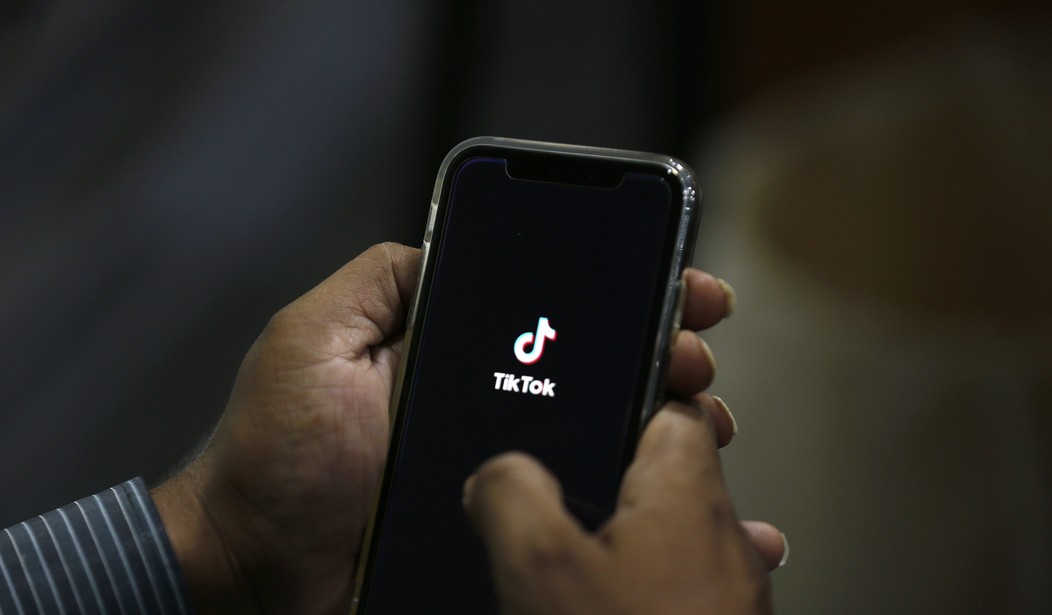Big Tech has a stranglehold over our online information and commerce. A few tech oligarchs dictate the platforms we use, the information we consume, and the nature of our online experiences.
We need urgent action to break free from the pervasive control of Big Tech, namely Google, Amazon (China’s online shopping mall), Meta (Facebook), Apple, and Chinese Communist Party-controlled TikTok. As we navigate these uncharted waters, supporting initiatives such as the sale of TikTok and championing legislative efforts like the Open App Markets Act (OAMA) are strategies we should embrace in our fight against these tech oligarchs.
Unfortunately, influential stakeholders dishonestly say that there’s no chance that these measures can be supported simultaneously. Both not only safeguard competition and innovation, but they also pave the way for a free-thinking and open digital ecosystem.
The TikTok sale primarily addresses well-founded concerns about the Chinese government’s influence and data security, taking power away from the CCP and giving it to someone with American interests at heart. On the other hand, OAMA targets the dominance of tech oligarchs like Google and Apple, aiming to foster a more competitive and fair digital marketplace by targeting their monopolistic practices.
It's important to clarify that forcing a sale of TikTok is by no means shutting it down. The push to force a sale is merely a strategic move aimed at transferring ownership to push for more data security and minimize Chinese influence and meddling in content delivery. TikTok would remain a fully functional platform with millions of active users, and the sale would address ownership issues without disrupting user accessibility or functionality. Some believe the sale means imminent app removal, but it is crucial to recognize that the primary goal is restructuring ownership of the website and app to safeguard user data.
Recommended
China remains one of—if not the most—significant threats facing America today, domestically and abroad. As it stands right now, everyone who has TikTok on their devices is a vessel for Chinese spyware and propaganda. Through forcing a sale, the government would be upholding one of its sacred duties: protecting Americans from any and all threats. We must consider TikTok in its current form as a national security threat, which makes the imminent sale of the platform all the more important.
Some have raised concerns about a vague and broad provision of the House-passed TikTok bill that could lead to the ban of websites and apps run by "a person subject to the direction or control of a foreign person or entity." Their concern is the federal government could politicize and weaponize that provision to deplatform political opponents. The Senate should debate and address this legitimate concern.
At its core, OAMA echoes the sentiments shared by proponents of the TikTok sale – the urgent need to dismantle the control exerted by tech oligarchs over digital platforms. By addressing the concentration of power in the hands of a few dominant players, both initiatives seek to empower users, foster innovation, and preserve the principles of a free and open internet.
OAMA would promote fair competition, benefit consumers, and safeguard free speech rights. Too often, users find themselves beholden to the will of the Big Tech oligarchs who wield immense power over app distribution and access. This bill would level the playing field by fostering a more open and competitive marketplace where developers can thrive based on their merits rather than the favor of the Big Tech gatekeepers.
While the TikTok sale releases control from one authority, the Open App Markets Act goes after the dominance of others, emphasizing the importance of diversifying the digital landscape and safeguarding the rights of consumers. Despite their different targets, both initiatives share a fundamental objective: freeing users from the stranglehold of tech oligarchs' dominance, whether that’s the Community Party of China or the Big Tech titans that control the flow of information. This should be a bipartisan, unifying effort instead of a divisive fight with poisonous rhetoric employed by either side.
Whether relinquishing control from foreign governments or challenging corporate monopolists, these efforts will empower users, promote competition, and ensure a more transparent and just digital environment for all. By supporting both the TikTok sale and OAMA, we can head to a future where the power of tech oligarchs is balanced by the interests and rights of the individuals they serve.

























Join the conversation as a VIP Member